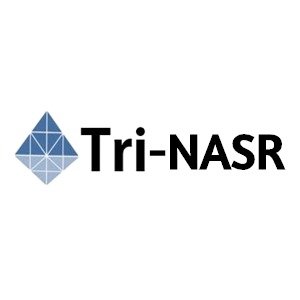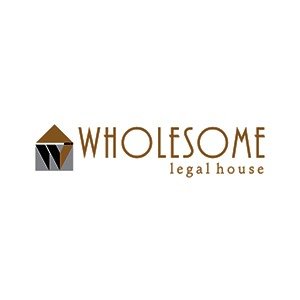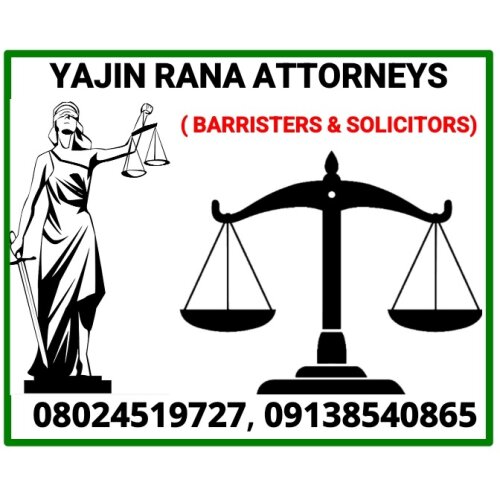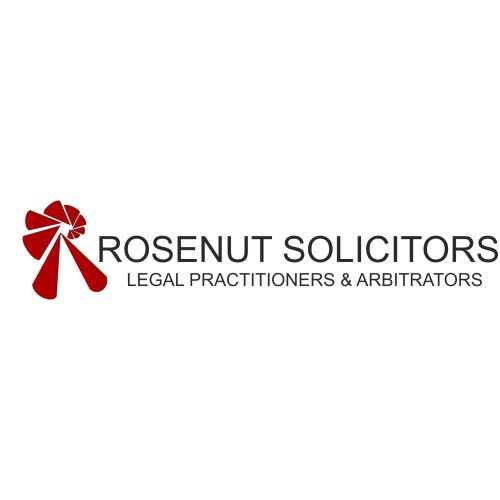Best Sanctions & Export Controls Lawyers in Kano
Share your needs with us, get contacted by law firms.
Free. Takes 2 min.
List of the best lawyers in Kano, Nigeria
About Sanctions and Export Controls Law in Kano, Nigeria
Sanctions and export controls are essential components of international and national law governing the trade, export, and transfer of goods, services, and technology. In Kano, Nigeria, these laws are relevant to individuals and businesses involved in cross-border trade, especially with countries or entities subject to sanctions or restrictions by the Nigerian government or the international community. Nigeria's legal system incorporates both local regulations and international obligations, aiming to control the flow of certain goods (such as weapons, dual-use items, and strategic resources), prevent illicit activities, and comply with United Nations or regional sanctions schemes. Compliance with sanctions and export control laws helps bolster national security, economic stability, and Nigeria's international relations.
Why You May Need a Lawyer
Navigating sanctions and export controls can be highly complex and confusing. Here are some common situations in Kano where you may require legal help:
- Planning to export goods or technology that may be subject to regulatory controls
- Engaging in trade with countries or entities that might be under Nigerian or international sanctions
- Receiving queries, warnings, or investigation notices from customs, financial institutions, or government agencies about your transactions
- Facing asset freezes, travel bans, or other trade restrictions
- Suspecting unintended violation of export controls due to the nature of your business or the destinations served
- Needing to develop internal compliance programs for your company
- Seeking advice on international joint ventures, partnerships, or supply chains that involve sensitive goods
- Being involved in disputes, seizures, or penalties related to export or import of controlled items
Legal professionals with expertise in this area can help you understand your obligations, ensure compliance, challenge or appeal sanctions, defend your interests in court, and reduce the risk of severe penalties.
Local Laws Overview
Several laws and regulations in Kano, Nigeria, relate specifically to sanctions and export controls:
- Customs and Excise Management Act - This national legislation governs the import and export of goods, licensing procedures, inspections, and penalties for violations.
- Terrorism (Prevention) Act - Provides the framework for counter-terrorism measures, including freezing assets and restricting trade with designated entities.
- Economic and Financial Crimes Commission (EFCC) Act - Empowers enforcement agencies to investigate transactions related to financial crimes and violations of sanctions.
- Nigerian Export Promotion Council (NEPC) Regulations - Regulate the export of non-oil products and set qualifying criteria for exporters.
- Central Bank of Nigeria (CBN) Guidelines - Impose controls on financial flows, especially against sanctioned jurisdictions or restricted goods.
- United Nations and ECOWAS Obligations - Nigeria incorporates UN Security Council and Economic Community of West African States sanctions and embargoes under its legal system.
In Kano, enforcement agencies such as the Nigerian Customs Service, EFCC, and other security and regulatory bodies oversee the compliance, investigation, and prosecution of breaches of these laws.
Frequently Asked Questions
What are sanctions?
Sanctions are legal restrictions or prohibitions imposed by a government or international body to achieve foreign policy, national security, or economic objectives. They may target specific countries, entities, individuals, or types of goods and services.
What are export controls?
Export controls are legal measures that regulate how certain goods, technologies, or services can be exported from one country to another. They typically cover items deemed sensitive, such as arms, dual-use items, or technology with national security implications.
Who can be affected by sanctions in Kano?
Any individual, business, or organization in Kano involved in trade, finance, or transactions that intersect with sanctioned entities, goods, or jurisdictions can be affected by sanctions, either directly or indirectly.
Which government agencies enforce sanctions and export controls?
Key agencies include the Nigerian Customs Service, Economic and Financial Crimes Commission (EFCC), Nigerian Export Promotion Council (NEPC), and occasionally security agencies and the Central Bank of Nigeria (CBN).
What are the penalties for violating sanctions or export controls?
Penalties can include fines, forfeiture of goods, suspension of trading licenses, travel bans, criminal prosecution, and imprisonment, depending on the severity and nature of the infraction.
Do international sanctions apply to businesses in Kano?
Yes, international sanctions (such as those imposed by the United Nations or ECOWAS) are implemented through Nigerian law and apply to businesses and individuals in Kano.
How can I check if a product or service is subject to export control?
You can consult the Nigerian Customs Service, the NEPC, relevant government websites, or a qualified legal professional to verify if your product or service is controlled or restricted.
What should I do if I receive an investigation notice?
You should contact a qualified lawyer experienced in sanctions and export controls immediately. They will guide you on how to respond and protect your rights throughout the investigation process.
Are there any exemptions to export controls in Nigeria?
Some exemptions may apply, such as humanitarian aid or certain diplomatic activities. However, these are strictly regulated and must be verified with the appropriate authorities and legal professionals.
Can sanctions or restrictions be challenged or appealed?
In some cases, it is possible to challenge or appeal sanctions decisions through administrative procedures or the courts, especially if you believe there has been an error or misuse of regulatory powers.
Additional Resources
For further information or support regarding sanctions and export controls in Kano, Nigeria, you may consult the following organizations:
- Nigerian Customs Service - For information on restricted or controlled goods, export licenses, and enforcement queries
- Nigerian Export Promotion Council (NEPC) - Guidance on export regulations, compliance, and trade support
- Economic and Financial Crimes Commission (EFCC) - Information on financial crime and sanctions enforcement
- Central Bank of Nigeria (CBN) - Guidelines on financial sanctions and cross-border payments
- Kano State Ministry of Commerce, Industry, and Cooperatives - Assistance for local businesses involved in international trade
You can also seek advice from experienced lawyers and regulatory consultants specializing in international trade and compliance.
Next Steps
If you believe you might be affected by sanctions or export controls or require advice to ensure compliance:
- Document all relevant transactions, correspondence, and official notices about your trade activities
- Contact a reputable law firm or legal practitioner in Kano with expertise in sanctions and export control law
- Arrange a consultation to discuss your circumstances and legal options
- Follow all professional legal advice and maintain clear records to support your case
- Stay informed on current regulations, as the legal landscape is subject to frequent changes and updates
Taking these steps can help you avoid legal risks, protect your business or personal interests, and efficiently resolve any issues relating to sanctions and export controls in Kano, Nigeria.
Lawzana helps you find the best lawyers and law firms in Kano through a curated and pre-screened list of qualified legal professionals. Our platform offers rankings and detailed profiles of attorneys and law firms, allowing you to compare based on practice areas, including Sanctions & Export Controls, experience, and client feedback.
Each profile includes a description of the firm's areas of practice, client reviews, team members and partners, year of establishment, spoken languages, office locations, contact information, social media presence, and any published articles or resources. Most firms on our platform speak English and are experienced in both local and international legal matters.
Get a quote from top-rated law firms in Kano, Nigeria — quickly, securely, and without unnecessary hassle.
Disclaimer:
The information provided on this page is for general informational purposes only and does not constitute legal advice. While we strive to ensure the accuracy and relevance of the content, legal information may change over time, and interpretations of the law can vary. You should always consult with a qualified legal professional for advice specific to your situation.
We disclaim all liability for actions taken or not taken based on the content of this page. If you believe any information is incorrect or outdated, please contact us, and we will review and update it where appropriate.

















